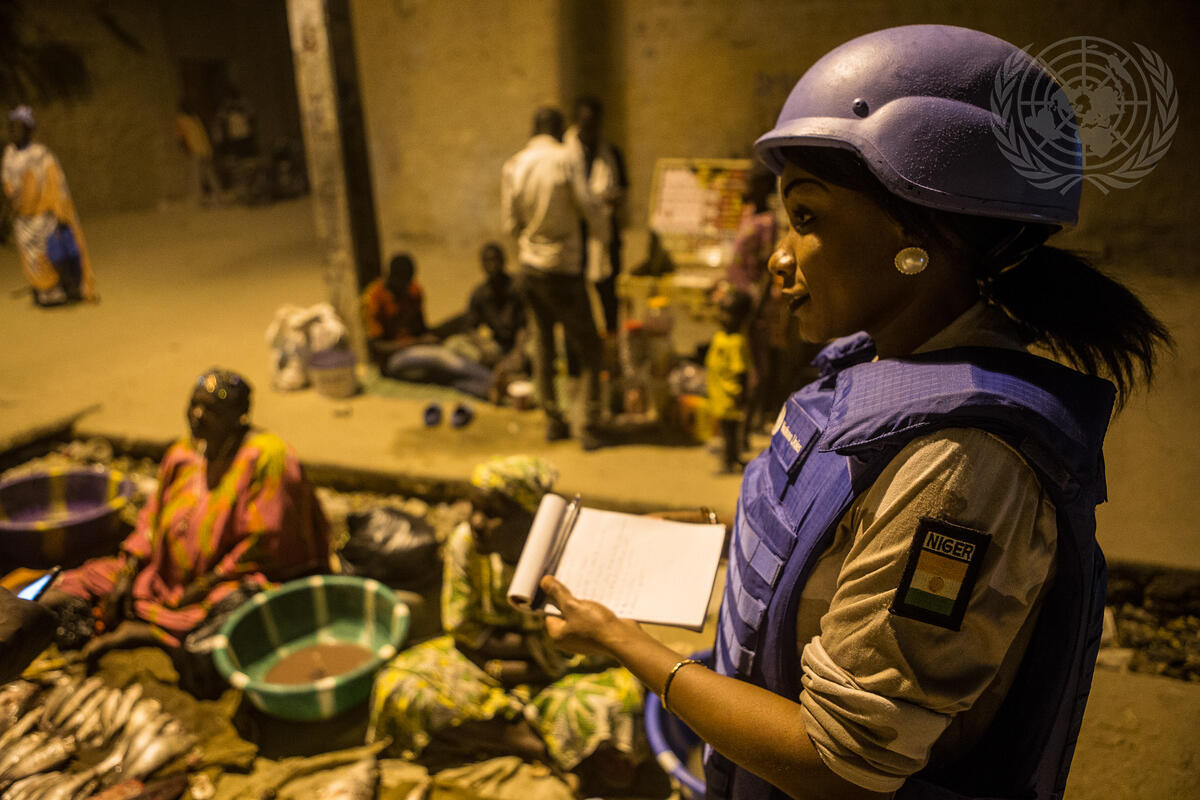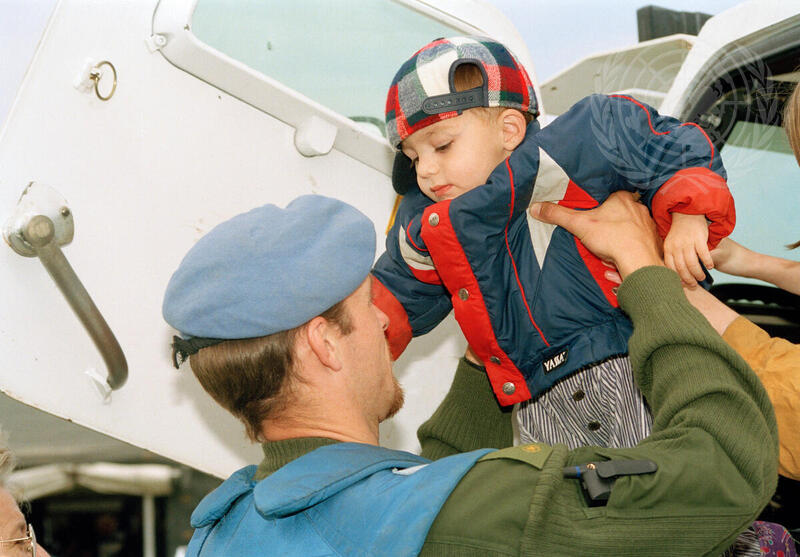STOP “FIXING” WOMEN!
More than twenty years after the first call for action to increase women’s participation in peacekeeping in UN Security Council Resolution 1325, women still make up only about 7% of all deployed uniformed personnel.
Conventionally, efforts spearheaded by the international community have focused on gender mainstreaming through two key policy prescriptions with limited effectiveness:
- the creation of specialized positions for and by women (such as gender advisors or focal points);
- the widespread implementation of gender training.
BUT NEW RESULTS CALL FOR NEW ACTIONS
Achieving the goals laid out in the Women, Peace and Security Agenda while meeting operational effectiveness imperatives (as outlined in the Action for Peacekeeping, or A4P, agenda) requires a paradigm shift.
Instead of interventions determined to achieve parity goals by “helping” women fit into inadequate work environments, the international community needs to move towards addressing the structural conditions that allow for meaningful participation. Finding new, better ways to truly anchor gender equality in security sector institutions at the national level will not only ensure that more women join their ranks – it will also enable them to better fulfil their mandates.
People that hold these views, rigid gender roles and hyper masculine views, are actually endangering the legitimacy of the peacekeeping mission and how they represent their country by finding misconduct acceptable, not reporting it and being more violent.
Dr. Sabrina Karim, Cornell University
STEP 1: RETAIN THE WOMEN YOU RECRUIT
The focus on numbers and percentages of women as key indicators of gender equality means that much more attention is given to strategies aiming to motivate and support women to join, rather than to policies and practices aiming to make them want to stay.
Security sector institutions expect women to adapt to discriminatory work environments and to prove their worth in a man’s world. Beyond existing efforts such as quotas, recruitment campaigns, and women-specific training, efforts should focus on retention, promotion, and career advancement for women in the security sector. Institutions that support personnel in balancing both their professional and personal life, uphold merit-based promotion systems, and put in place systems to ensure that abuse is not tolerated, turn out to be much more successful at hitting targets for women’s representation. But more importantly, they reach the highest professional standards and achieve valuable goals, such as the creation of a more inclusive work environment for all, or an enhanced ability for men to take on equal responsibilities at home.

United Nations Police officers do frequent patrols in Timbuktu to secure the city against threats of terrorism and banditry. Photo: UN
STEP 2: STOP "PROTECTING" WOMEN
Pervasive gender stereotypes and rigid perceptions of what men and women can do, should do, and are good at, still constitute invisible yet powerful barriers to women’s meaningful participation in the security sector. They are sustained by those in power and reinforced by the culture and bonding mechanisms in male-dominated institutions.
Seemingly benevolent beliefs, such as the notion that “women need to be protected”, are as harmful as they are prevalent. When decision-makers think women are too weak for combat, too vulnerable for operational roles, or too unskilled to lead, they are casting doubt on the ability of qualified professionals to do their jobs – and this hurts their career prospects.
That is the key point: the problem is us men. We think that women cannot carry out these types of tasks. [...] The change is happening through coexistence, when we can work together with women and we see that they can do the same as men and that we are actually the ones who set the limits for them.
Colonel Gonzalo Mila, Uruguayan Ministry of National Defense

A peacekeeper with a local child at a UN Day event held at the UN Preventive Deployment Force Headquarters in Skopje. Photo: UN
STEP 3: THE WAY FORWARD
Changing women’s behaviours will not achieve gender equality. Let us turn to real solutions that will drive long-term and sustainable institutional transformation:
- Create respectful, non-discriminatory work environments with fair promotion systems, flexible work policies, mechanisms aiming to redistribute the burden of care work, and Human Resources management systems that value diversity and inclusivity;
- Change beliefs and attitudes, including the mindsets of male personnel who are still overrepresented, and of the people in charge who act as role models;
- Support authentic and committed leadership at all levels to spur the required change;
- Set up strong accountability mechanisms, such as functioning sexual harassment complaints mechanisms.
Taking new action never seems easy but it is the only way of finally meeting the international community's now decades-old commitment to increasing women's meaningful participation in peacekeeping.
For more on the critical importance of institutional transformation watch the discussion with global experts at our recent webinar.
 Share on Facebook
Share on Facebook Share on Linkedin
Share on Linkedin Share on Twitter
Share on Twitter